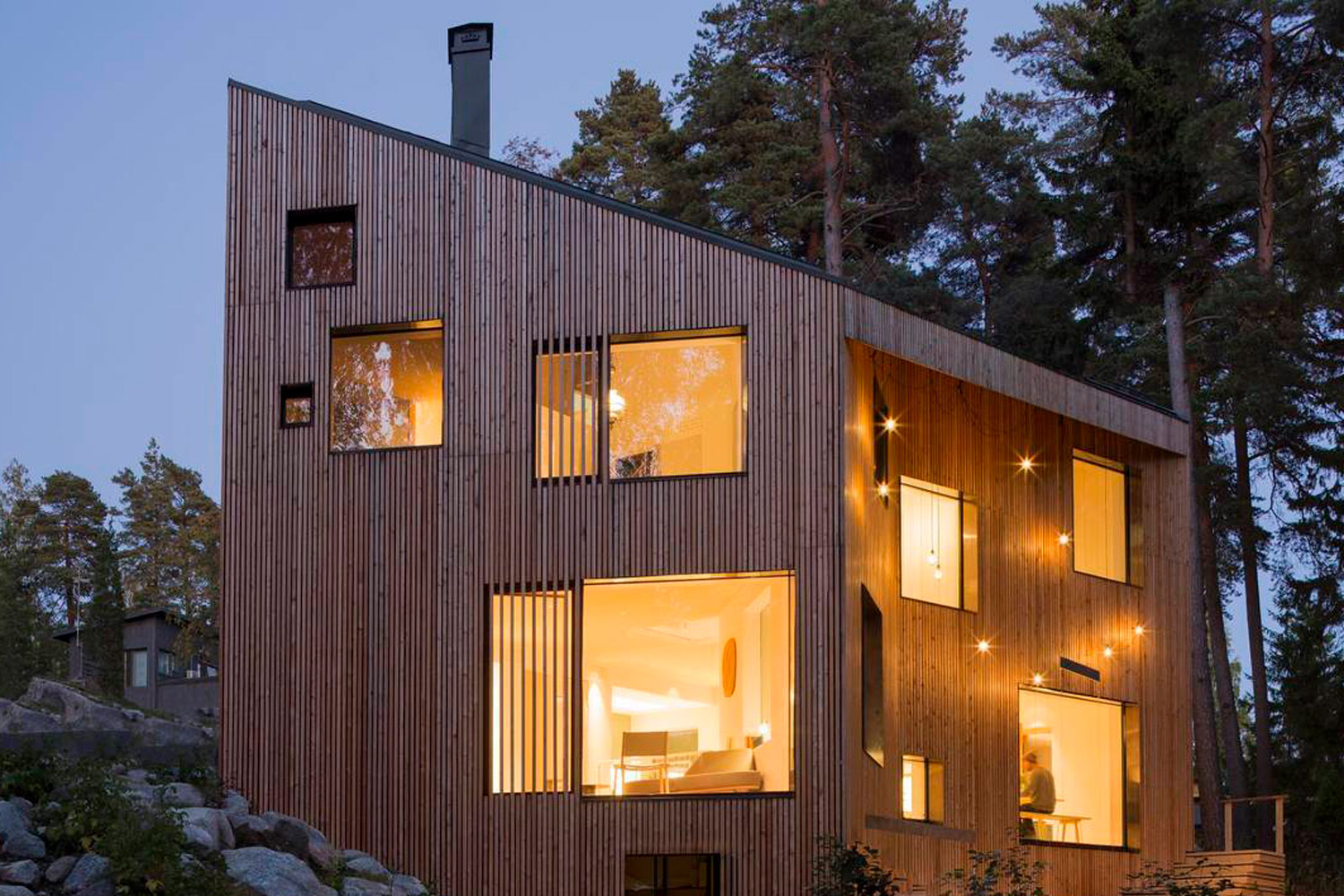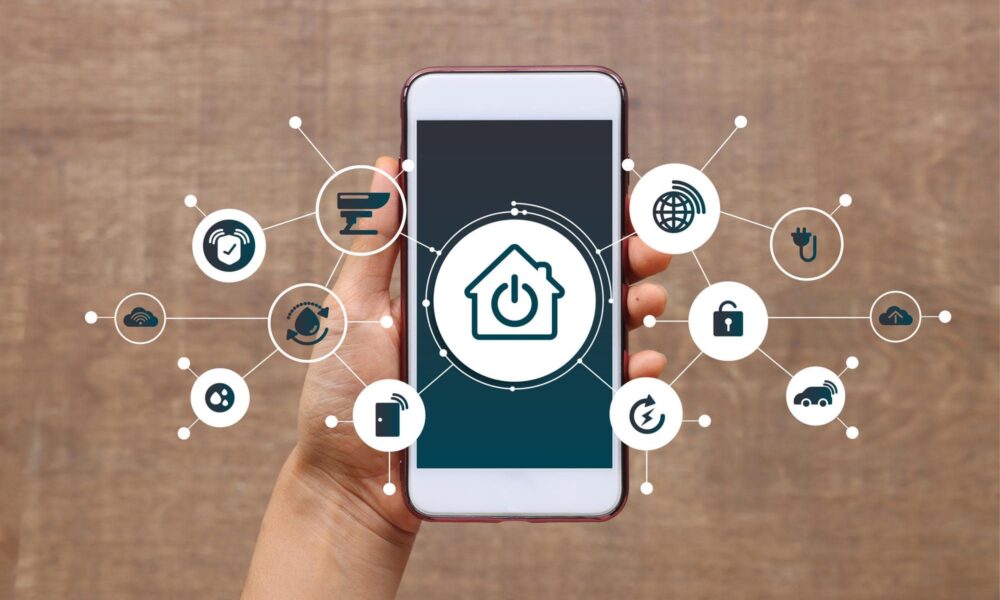Understanding the Internet of Things (IoT) in Smart Homes: Revolutionizing Your Living Space
The internet of things (iot) enables smart homes to connect and control various devices through the internet. In this interconnected system, devices can communicate and share data, making homes more convenient and efficient.
With iot technology, homeowners can remotely monitor and manage appliances, lighting, security systems, and other connected devices. Iot expands the capabilities of smart homes by integrating devices, sensors, and data analysis to provide automation, energy efficiency, and improved security. It is revolutionizing the way we interact with our homes, making them more intelligent and responsive to our needs.

Credit: parametric-architecture.com
The Internet Of Things (Iot) Explained
The internet of things (iot) is a concept that enables smart homes to connect and communicate with devices. Iot technology allows various devices in a home, such as lights, appliances, and security systems, to connect to the internet and exchange data.
Through this connectivity, users can control and monitor their smart home devices remotely using their smartphones or other devices. Incorporating iot in smart homes offers several benefits, including enhanced convenience, increased energy efficiency, improved security, and automation of various tasks.
With iot, homeowners can remotely adjust their thermostat, receive notifications about potential security threats, or even automate their lighting based on their preferences. As iot technology continues to evolve, it is expected that connectivity and automation in smart homes will become even more advanced, making our lives more comfortable and convenient.
Smart Homes: A Revolution In Living Spaces
Smart homes have revolutionized the way we live, with iot playing a crucial role. These homes are equipped with advanced technologies that offer convenience and efficiency. Defining smart homes involves the integration of various devices and systems, such as appliances, lighting, security, and entertainment, allowing them to communicate and be controlled remotely.
The impact of smart homes on our everyday lives is significant, transforming how we manage our homes. Key features of a smart home include automation, connectivity, and customization. Automation allows for tasks to be performed automatically, enhancing efficiency and comfort.
Connectivity enables devices to communicate and collaborate, creating a seamless experience. Customization allows users to personalize their living spaces according to their preferences. In conclusion, smart homes have become an integral part of our lives, offering an enhanced living experience through iot technology.
Iot Devices And Technologies For Smart Homes
The internet of things (iot) has revolutionized smart homes with a wide range of devices and technologies. Smart thermostats, lighting systems, security systems, and appliances are commonly used in these homes. These devices are powered by various technologies such as wi-fi and bluetooth connectivity, which allow seamless communication between devices.
Voice assistants, like amazon echo or google home, enable voice control over smart home devices. Machine learning and artificial intelligence also play a significant role in making smart homes more intelligent and efficient. With the iot, homeowners can remotely control and monitor their homes, making their lives more convenient and secure.
Enhancing Convenience And Comfort With Iot
Smart homes, powered by the internet of things (iot), offer enhanced convenience and comfort. By remote controlling and automating devices, daily tasks become easier. With iot, energy efficiency and cost savings are achievable. The ability to personalize and optimize living spaces is another major advantage.
Iot technology also improves safety and security, providing peace of mind. Homes can be equipped with smart locks, cameras, and sensors for added protection. Embracing iot in smart homes transforms the way we live, making our lives more comfortable, efficient, and secure.
Challenges And Concerns With Iot In Smart Homes
Iot in smart homes presents several challenges and concerns. Privacy and security risks are major issues that need to be addressed. Interoperability problems among various devices further complicate matters. The potential for hacking and cyber threats is a daunting concern.
Additionally, data collection and privacy concerns arise due to the vast amount of information being gathered. These challenges and concerns require careful attention and robust solutions to ensure the seamless integration of iot in smart homes. By prioritizing privacy, security, and addressing interoperability issues, the potential benefits of the internet of things in smart homes can be fully realized, making our lives more convenient and efficient.
However, it is crucial to stay vigilant against the risks associated with this technology to maintain a safe and secure environment.
Overcoming The Challenges: Best Practices And Solutions
Smart homes are revolutionizing the way we live, thanks to the internet of things (iot). To fully embrace this technology, it is crucial to overcome challenges and implement best practices for secure and reliable network infrastructure. This means utilizing strong encryption and authentication methods, regularly updating devices with patches, and implementing privacy protection measures.
By ensuring a robust network, homeowners can enjoy the benefits of iot without compromising their security or privacy. Emphasizing the importance of these practices helps create a seamless and worry-free experience in the world of smart homes.
Future Trends In Iot And Smart Homes
The future of iot and smart homes lies in advancements in artificial intelligence and machine learning. These technologies enable devices to learn from experience and make predictions, enhancing the automation and control within homes. Additionally, the integration of iot with smart cities and infrastructure allows for seamless connectivity and data sharing.
This paves the way for more efficient management of resources and improved quality of life for residents. As the iot ecosystem expands, we can expect a wider range of devices and applications to become available, offering endless possibilities for smart homes.
Whether it’s controlling lighting, temperature, or security systems, iot is revolutionizing how we interact with our homes. With ongoing advancements, the potential for iot and smart homes is limitless. The only question now is, how will you embrace this future?
Conclusion
To sum up, the internet of things (iot) has revolutionized the way we interact with our homes, making them smarter and more efficient. By connecting various devices and systems in our homes, iot technology allows for seamless communication and automation, enhancing convenience, safety, and energy efficiency.
From controlling appliances and security systems remotely to monitoring energy usage and optimizing resource consumption, iot in smart homes offers a plethora of benefits. As technology continues to advance, we can expect even more innovative applications of iot in our daily lives.
However, it is crucial to prioritize security and privacy concerns when implementing iot devices in our homes. By staying informed and taking necessary precautions, we can fully enjoy the advantages that iot technology brings. So, embrace the iot revolution and transform your home into a smart, interconnected hub for a more convenient and sustainable future.






